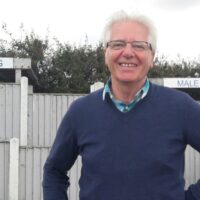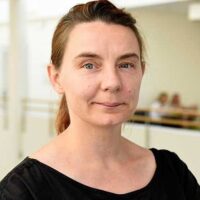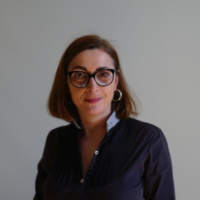Organisers
Scientific committee

Fredrik Bondestam is Associate Professor in Sociology at Uppsala University and currently the Director of the Swedish Secretariat for Gender Research at the University of Gothenburg. His research covers organizational change in higher education and research, feminist pedagogy, gender-based violence and sexual harassment, risk and masculinities, and gender mainstreaming in theory and practice. As senior research leader at the Center for Gender Research, Uppsala University, he developed pioneering gender perspectives on the management, governance and organization of higher education. Fredrik has also managed government assignments on gender mainstreaming in Sweden during 2013-2017 and currently participates in several EU funded Horizon 2020 projects targeting preventive measures on gender-based violence and harassment in ERA (UniSAFE, GENDERACTION Plus).

Ana Maria F. Almeida is professor of Education and Inequalities at the University of Campinas, Sao Paulo, Brazil. Her research and teaching agenda focuses on understanding how education and schooling contribute to persistent social inequalities among social groups along class, race and gender lines, and to examining initiatives designed to change it. She is the co-Chair of the Committee on Gender Equality at the University of Campinas, where she has steered the formulation and implementation of the university’s policy on equality, diversity and inclusion, and is also the Vice Dean of Admissions, where she has been overseeing the implementation of Affirmative Actions in the last five years. She works as Special Advisor to the Scientific Director at the Sao Paulo Research Foundation (Fapesp), in the areas of Humanities and Social Sciences, and is also co-Chair of the Global Research Council Gender Working Group, where she has steered studies on how gender issues are being addressed by participant organizations, and contributed to craft recommendations on how gender and other EDI dimensions should be taken into account in different initiatives advanced by funders.

Jeff Hearn is Professor Emeritus, Hanken School of Economics, Finland; Professor of Sociology, University of Huddersfield, UK; Senior Professor, Human Geography (formerly Gender Studies), Örebro University, Sweden; Fellow, Academy for the Social Sciences (UK); honorary doctor, Social Sciences, Lund University, Sweden. He is: co-managing editor, Routledge Advances in Feminist Studies and Intersectionality book series; co-editor, NORMA: The International Journal for Masculinity Studies. With research focusing on gender, sexuality, violence, work, organisations, policy, ICTs, and transnational processes, he has worked on many EU and Nordic research and policy projects, e.g. CROME, CAHRV, GenPORT, Violence Regimes. Books on violence include: Violence and Gender Relations, 1996; The Violences of Men, 1998; Gender, Sexuality and Violence in Organizations, 2001; Sex, Violence and the Body, 2008; Revenge Pornography, 2017. Two co-authored books are in production: Knowledge, Power and Young Sexualities, with Tamara Shefer, and Digital Gender-Sexual Violations, with Matthew Hall and Ruth Lewis, both Routledge, 2022.

Ruth Lewis is an Associate Professor in the Department of Social Sciences, Northumbria University in the UK. Trained as a Sociologist, her work spans Sociology, Criminology and Gender Studies and her research focuses on gender-based violence (GBV) and feminist activism against it. Recent work examines GBV in universities, online abuse (such as against feminists), and image-based sexual abuse (such as ‘upskirting’). Recent publications include Digital Sexual Violence, Abuse and Violation (in press Routledge), with Matthew Hall and Jeff Hearn, Collaborating for Change: Transforming cultures to end gender based violence in higher education (2020 Oxford University Press), edited with Susan Marine, and Gender-Based Violence in University Communities: policies, prevention and educational initiatives, (2018 Policy Press) edited with Sundari Anitha. As well as working as an academic for decades, she has also been involved in various kinds of activism, including helping to run domestic violence organisations, to organise conferences and ‘gatherings’ for practitioners, activists, and scholars, and to provide training about GBV.

Sara Pilia graduated in Chinese language and culture at Sapienza University (2015). She subsequently started her PhD training in History and Political institutions of Contemporary China in the same university. At the same time, she got involved in advocacy activity in University and research, with the Italian Association of ECRs in Italy first, and then Eurodoc. At the European level, she focused especially on gender issues in academia. From 2019 to 2021 she coordinated the Eurodoc Equality WG, and in 2021 was elected Eurodoc Vice President and started working on the drafting of a Gender Equality Plan. As Vice President, she also acted as Head of delegation at the Conference of INGOs of Council of Europe. In the Conference of INGOs, she is Secretary of the Committee devoted to gender equality and women’s rights.
Currently, she works mostly in Italy in cooperation with the national association ARCI. In this association, she is also a member of the National working group on gender issues.

Sofia Strid is Associate Professor in Gender Studies, Örebro University and Senior Lecturer in Sociology, Gothenburg University, Sweden. She is Research Leader of the Centre for Violence Studies. She works inter-disciplinary and has held positions in Gender Studies, Political Science, and Sociology in Austria, Belgium, Sweden, and the UK. Strid has worked extensively on developing concepts and methodologies for theorising and measuring gender-based violence, currently as the Scientific Coordinator of the EUH2020-funded projects UniSAFE: Gender-based violence and institutional responses (2021-2024), RESISTIRÉ: Reducing gendered inequalities (2021-2023), and ACCTING: For a fair and inclusive green deal (2022-2025), and as PI of the Swedish Research Council funded Violence Regimes (2018-2022). Her work has been published in e.g., Policy and Practice, Feminist Theory, Health Care for Women International, Journal of European Social Policy, Journal of Sex Research, Politics and Governance, Social Politics, Social Problems, Sociology, Theory & Society, and Women’s Studies International Forum.
Local organising committee

Marcela Linková PhD is a researcher at the Institute of Sociology of the Czech Academy of Sciences where she directs the Centre for Gender and Science. She has a doctorate in sociology from Charles University in Prague. Her research focuses on sociology of gendered organizations, research careers, governance of research and research assessment from a gender perspective. Marcela also examines the material-discursive practices through which gender equality policies and initiatives are adopted and implemented at the European and Czech country levels. She is the chair of the ERAC Standing Working Group on Gender in Research and Innovation. She is active in developing policy solutions for gender equality in research at the Czech and EU levels. Marcela has been involved in several EU funded projects; most recently, she is the coordinator of Horizon 2020 GENDERACTION project and participates in GE Academy, Gender-SMART and CASPER. She has served on expert and advisory bodies of the European Commission and in the Czech Republic. She is an alumna of the International Visitor Leadership Programme “Women in STEM”.

Ananké studied Liberal Arts and Humanities, majoring in social anthropology at the Faculty of Humanities, Charles University, and spent a year abroad as an Erasmus exchange student at the University of Copenhagen. At the moment, they are writing their thesis in the Gender Studies program also at FHS CU, focusing on intersections of feminism and ecology. They have been a member of Centre for gender and science since April 2022. They are an event coordinator of a conference organized within the framework of the Czech presidency of the Council of the EU dealing with gender-based violence in academia.

Jana studied Gender studies at the Faculty of Humanities, Charles University. She has been a member of the Center for Gender & Science team since November 2021 as a communication manager in the CZERA project. Before that, she worked as a communication expert in private companies and public and cultural institutions. Previously, she was also dealing with activities addressing sexism in advertisements.

Jarmila has been part of the Center for Gender & Science team since 2021. She is currently studying Transcultural Communication at the University of Hradec Králové, where she tries to raise gender issues at every opportunity. In the past, as a self-defense instructor, she was involved in applied prevention against physical violence, and this drew her to the topic of gender (in)equality. Jarmila is in charge of running the office, co-hosting events, and administering Moodle.

Lucie Núñez Tayupanta has been working at the position of the Head of Unit of the European Research Area at the Department of Research and Development of the Ministry of Education, Youth and Sports of the Czech Republic for three years. She is responsible for creating and developing strategy for an effective R&D policy at national level and engaging stakeholders to ensure its successful implementation. Furthermore, she is involved in implementing international cooperation in R&D and coordination of the Czech participation in international R&D programmes, notably the EU Framework Programme for Research and Innovation Horizon Europe. Since 2013, Lucie has participated in activities carried out by the High Level Group for Joint Programming (GPC) and, subsequently, Transitional Forum for Partnerships as national delegate of the Czech Republic; currently she serves as national representative in the Horizon Europe Strategic Programme Committee, ERA Forum and Partnership Knowledge Hub. Furthermore, she has been national delegate for several years in Committee for Scientific and Technological Policy within the Organisation for Economic Cooperation and Development (OECD).